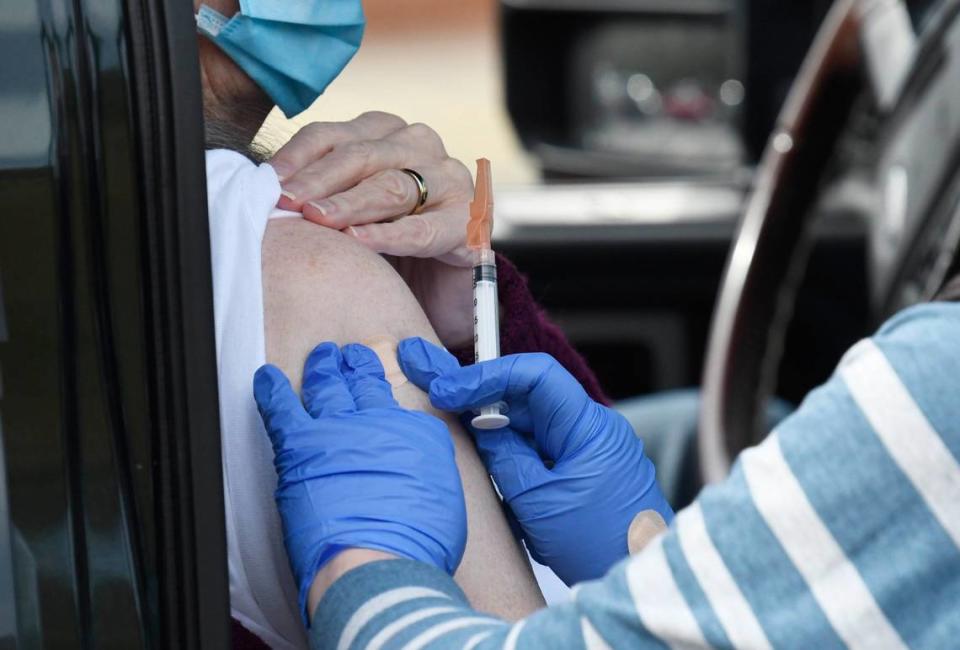Here’s what you should and shouldn’t do after getting your COVID vaccine shot
As vaccines for the coronavirus continue to roll out, questions still remain for some about how they should handle themselves and what they need to still be concerned about once they get a shot.
More than 82,000 doses of the COVID-19 vaccines have been administered in Mecklenburg County as of Thursday. That includes more than 66,000 first doses.
North Carolina is currently vaccinating health care workers, residents and staff at long-term care facilities and anyone age 65 and older. The next group of eligible people will include front-line essential workers.
COVID-19 concerns remain, even as more people are getting a vaccine. On Thursday, 150 deaths were reported in North Carolina. It’s the second day in a row the state has reported at least 150 deaths.
Here’s what you need to know after getting your COVID-19 shot.
Do I need the second injection?
Yes. Both COVID-19 vaccines available right now require two injections, spaced weeks apart.
The second dose of the Pfizer vaccine is given three weeks after the first — Moderna’s two doses are spaced four weeks apart.
Everyone who gets the first dose should get the second dose of the COVID-19 vaccine, Mecklenburg County Health Director Gibbie Harris said this week.

“Don’t assume that first dose is going to give you all the protection you need,” she said. “You need to follow up with your second dose.”
That’s because the second dose increases your protection from the coronavirus, according to Atrium Health.
Hospitalizations and COVID-19 cases have been trending down in Mecklenburg County in recent weeks, but deaths from the coronavirus remain high.
And experts say the appearance of new — more contagious — strains of the virus could prompt a potential uptick in cases.
Can I stop wearing a mask?
No. Health experts say everyone needs to continue following coronavirus safety guidelines, including wearing masks, social distancing and avoiding large groups — even after getting the vaccine.
“A vaccine provides a level of protection from getting sick but does not in any way change any of the preventative measures that people need to follow,” Mecklenburg County Medical Director Dr. Meg Sullivan told reporters Wednesday.
Can I still spread COVID-19?
Health experts still don’t know if people who get vaccinated could still be spreading the coronavirus, Sullivan said. That’s another key reason why people need to continue to follow social distancing and mask wearing after getting the vaccine.
“Because we have so much virus in our community and there’s such urgency in preventing further transmission given the impact we’re seeing — anybody who is vaccinated still needs to wear a mask at all times,” she said.
Mecklenburg County and the rest of North Carolina could begin vaccinating people in Group 3 of the state’s vaccination plan by March, Harris told reporters Wednesday. That includes front-line essential workers like teachers, law enforcement officer and grocery store employees.
“We are moving in the right direction,” Harris said. “We are getting people vaccinated. … But it’s going to be a while before we can fully open things in our community.”
Can I still get COVID after my shot?
Yes. While both vaccines provide roughly 95% protection from the virus — that’s not a 100% guarantee, Sullivan said.
“People still need to take measures to protect themselves,” Sullivan said.
Will I have to get vaccinated every year?
That’s possible, but we don’t know yet. Several mutations of COVID-19 have already appeared.
“With mutations with the virus, we have to be concerned about the effectiveness of the vaccines,” Harris said. “… The hope is that regardless of the variants that there’ll be at least some level of protection from the vaccines.”
There’s a possibility that people may need to get a COVID-19 vaccine every year, like a yearly flu shot, Harris said. But we won’t know for certain until more research is done.
“(That) would not be something out of the ordinary,” Harris added.

